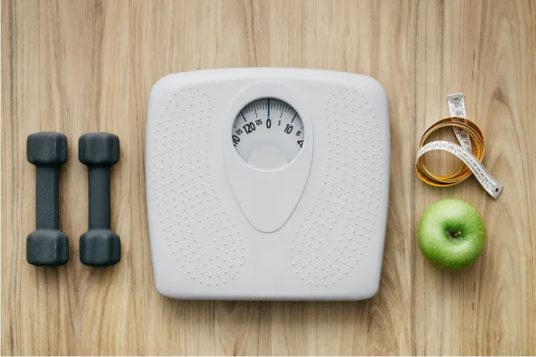You can’t blame weight gain during menopause on ‘hormones’, according to a University of Sydney researcher.
Dr Nicholas Fuller – the Research program leader at the Charles Perkins Centre in the University’s Faculty of Medicine and Health (who also authored and founded the Interval Weight Loss program) – writes in The Conversation this week that ageing is the real cause of those extra kilos that happens to women once they hit menopause.
While certain areas such as your stomach are more prone to weight gain during menopause, Dr Fuller says this is because the change in hormones – which lead to a higher testosterone-to-estrogen ratio – changes where the body deposits fat.
Fat comes off the hips and instead ends up around the middle (thank you hormones).
As we get older, our body stops working as efficiently as it did before. Muscle mass starts to decrease –otherwise known as sarcopenia – and fat begins to increase.
This applied to men too – who are just as likely as women to put on weight as sarcopenia increases.
So, what can you do?
Dr Fuller stresses that putting on weight as you age is not inevitable.
He recommends regular daily exercise; weighing yourself once a week to monitor any trends; replacing bad behaviours with health habits, for example, the nightly TV binge with a walk or a new hobby; eating away from technology and other distractions to slow down your food consumption; improving your sleep patterns and opting for fruit, nuts and avocado over sugary or fatty treats.
Sounds like good advice to us.



